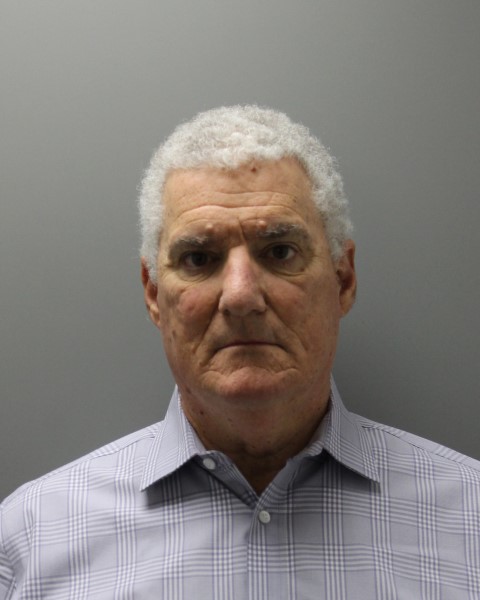Hail Santa and Merry Satan — Satanic Temple Post Display at State House

You better watch out, you better not cry, you better look out, I’m telling you why: Satan is coming to town.
Or, at least, The Satanic Temple of New Hampshire and Vermont (TST) is bringing its Satanic Representation campaign to the capital.
The faux devil-worshipping group unveiled its holiday display at the Concord City Hall Plaza in front of the State House over the weekend, just a few yards from the traditional creche displaying the nativity of Christ.
Now, visitors stopping to get a glimpse of the baby Jesus can get in the holiday spirit by also viewing a statue of the goat-headed demon, Baphomet, holding a lilac and an apple. There is also a marble slab displaying the TST’s seven tenets.
 “A lot of people run from the word ‘satanic,’ but we embrace it,” TST Minister Vivian Kelly said at Saturday night’s unveiling.
“A lot of people run from the word ‘satanic,’ but we embrace it,” TST Minister Vivian Kelly said at Saturday night’s unveiling.
State Rep. Ellen Read (D-Newmarket) helped the TST get the necessary permits for the display and told NHJournal the group has every right to have its display alongside the traditional Christmas imagery.
“Everything has the potential to offend, even the nearby nativity scene. Not only is over a third of the state not religious, never mind Christian, but I can imagine those who have been judged, harmed, or abused by the Christian church feeling offended by the nativity scene displayed on public grounds. And yet the nativity scene has stood perennially, unmolested, for years,” Read said in a statement provided to NHJournal.
The TST, not to be confused with Anton Lavey’s Church of Satan, is an atheist, liberal activist organization that supports abortion access, the rights of transgender people, and the separation of church and state. As Kelly said Saturday, the group supports people choosing their own path.
“People can live their best lives as they want as their true authentic selves,” Kelly said. “Just because we’re not large in numbers doesn’t mean our beliefs are less important than any of the other religions represented here.”
Critics of the Satanist display say it’s not an attempt to share their beliefs but rather an attempt at attention seeking from a fringe group that hopes to disrupt the Christmas traditions so many Granite Staters, regardless of their personal faith, enjoy during the holiday season.
“Christians should either ridicule these displays as cartoonish or else deny ‘The Satanic Temple’ the attention they use to generate media exposure and funds,” Shanon McGinley, executive director with Cornerstone, said in a statement.
McGinley says the group is atheist in principle and holds no actual religious beliefs, but instead uses the guise of a Satanic church to push a feminist agenda.

“They are normal, atheist feminists who use Satanic imagery as a legal tactic, to fundraise through media exposure, and because offending Christian grandmothers brings a sense of meaning to their sad lives,” McGinley’s statement reads.
The Satanic Temple’s website acknowledges its atheism and that it embraces Satan as an anti-authority figure and uses Baphomet essentially as a mascot. Baphomet is a fictional creation of the Middle Ages that was later taken up by occultists like Aleister Crowley, who pioneered 20th-century devil worship and the practice of magic.
Real or not, Baphomet drew onlookers Sunday, curious about the goat-headed demon.
“I like the Satanism display better than the Nativity,” said a woman from Manchester who declined to give her name. “I don’t believe Jesus was real. I’m not religious in any sense.”
She and a group of friends had come to Concord specifically to see the paganism display.
“It’s the sole reason we’re here, to be honest,” she said.
A local Concord man, who also was unwilling to give his name, echoed those sentiments.
“I think it’s so cool. It’s really I think it’s awesome, dude,” he said.
The man argued that if the Nativity display can be on the State House sidewalk, why not the Church of Satan display?
“I think it’s funny that people get so bent out of shape about it,” he said.
Asked if he sees any moral differentiation between Christianity and Satan worship, he said ,“No.”
On the other hand, a passerby who didn’t stop to talk commented, “I hope someone tears it down.”
Read said someone did try to tear it down Saturday night, about two hours after it was unveiled. Though the incident was not reported to the police, Read said Baphomet was knocked down ,and a crack was put into the marble slab.
“If we presume that those that have vandalized the display of Baphomet are doing so in the name of Christianity, then does that speak for a family-friendly holiday celebrating love, peace, and goodwill towards all?” Read said.
McGinley’s statement did not call for any violent response to the display, but it encouraged those who want to counter TST’s Baphomet to do so in a Christian manner. Christmas displays on private property, orthodox and joyful street preaching, and more displays on any public space possible are the best response, she said.
“We encourage Christians to place larger, more aggressive, and more frequent Christmas and other Christian displays in every public venue available,” McKinley’s statement read.






 In addition to the vandalism of their cars, several of the Republican volunteers also reported having previously received threatening phone calls and letters.
In addition to the vandalism of their cars, several of the Republican volunteers also reported having previously received threatening phone calls and letters.




